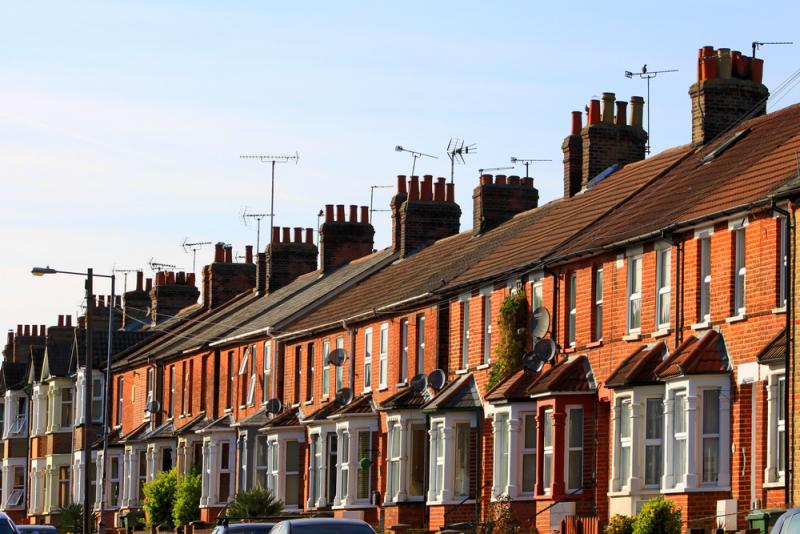
Home insurance not only covers you for theft, but also protects against damage caused by a number of unforeseen events including flooding, fire and burst pipes.
From the different types available to the things that can affect your prices, we’ve tried to answer all your home insurance questions in this guide.
What to do before you get home insurance
There are a few things you can do before you buy home insurance to help get the right cover at the right price.
Maintain and protect your home
Most home insurers need you to look after your home to avoid issues caused by lack of maintenance. It's important that you keep up with routine maintenance, such as cleaning your gutters and servicing your boiler, to avoid common issues.
Protecting your home is also very important. Whether this means something big like fitting a burglar alarm or something simple like adding locks to windows, extra levels of security can help you avoid having to claim.
Work out the values
Make sure your calculations are accurate when working out the value of your buildings and contents. The value of the building is the rebuild value and not the higher market value. Use the Association of British Insurers’ calculator to work this out
Avoid underestimating
In the long run it’s always better to have estimated your contents’ value as accurately as possible. Under insuring your contents could leave you out of pocket when you come to claim. Consider all the items that you have and what it might cost to replace them.
Set the correct excesses
Most home insurance policies come with a voluntary and mandatory excess.
The voluntary excess is the amount of a claim you choose to pay yourself. The mandatory excess is the amount you have to pay towards your claim.
Increasing your voluntary excess can lower your premium. But then, the amount you’d be expected to pay in the when you claim will increase, so you should always make sure it’s affordable for you.
Which type of home insurance is right for me?
There are three main types of home insurance: buildings, contents and combined buildings and content insurance.
Buildings insurance covers the structure of your home, including the walls, windows and roof as well as any permanent fixtures (like baths and toilets). Central heating storage tanks and drains, permanently connected pipes and cables, service tank and solar panels permanently fixed to the buildings or the ground are covered by this.
Some mortgage providers need you to buy buildings insurance before they give you a mortgage. If you’re a tenant, it’s usually your landlord’s responsibility to arrange buildings insurance.
Contents insurance covers the things inside your home, rather than the home's structure. This includes furniture, clothes and electrical items like laptops and speakers. We have a handy contents insurance calculator you can use to work out the value of your home's contents.
Combined buildings and contents insurance covers the home's structure itself and the contents inside.
What’s excluded from my home insurance policy?
It’s always important to read the exclusions section of your home insurance policy as this can change from insurer to insurer.
With most insurers, loss or damage caused by gradual wear and tear isn't covered. On top of this, most insurers won't cover mechanical breakdown, such as a TV stopping working because of internal issues.
Business use and your home
A standard home contents insurance policy may not cover you working from home. If you do conduct business from home you need to let your insurer know, as you may need additional cover with your policy.
At Admiral, we cover:
- businesses that have a low number of visitors to the property
- mobile hairdressers, dog groomers and beauticians
- registered childminders
Office equipment used for business is covered on our Gold and Platinum home Insurance (subject to limits and exclusions).
It’s important to remember that if you need Professional Indemnity insurance or Public Liability insurance, you’ll need to ensure that you have this sourced separately as Admiral doesn’t provide cover for either of these.
Want to know more about our home insurance for business use? Have a look at our guide.
The levels of cover
Admiral offers three levels of home insurance cover:
- Admiral: our most basic level that covers your home essentials
- Admiral Gold: home insurance that covers your home essentials plus some useful extras
- Admiral Platinum: our highest level of cover that gives you extra peace of mind to your home
Our home policy book explains each level of cover in detail if you want to learn more.
Are students covered?
With your Admiral Platinum policy we’ll pay up to the amount shown on your home policy schedule for loss or damage of your family’s contents while temporarily removed from your home. They need to be kept in a locked room while at college/university halls of residence, student accommodation or boarding school.
The excess
An excess is the amount you have to pay towards any claim or incident of loss or damage.
Please check your policy documents for details of the excess that applies for the cause of the loss or damage you are claiming for. More than one excess may apply and total excess may vary depending on the cause of the loss or damage.
Flooding
Even homes at high risk of flood can now get covered for flooding thanks to the Flood Re scheme. This is an agreement with the government and insurers, including Admiral, which allows us to offer more affordable insurance for areas most at risk of flooding. So if your home is at risk, we may be able to save you some money.
Read our flood Re guide for find out more information about the scheme.
What else should I keep in mind?
There are a few other parts of home insurance to think about before you go ahead with a policy.
Host insurance
To find out more about our host insurance if you're renting your home on home sharing sites, our helpful guide is here to help.
Subsidence
Subsidence is what happens when the ground beneath your house starts to slowly sink, which then causes the house itself to sink.
Unfortunately, a lot of typical house insurers won't cover subsidence. To find out more about subsidence, check out our guide that explains everything you need to know.
Unoccupied properties
Find out everything you need to know about keeping your house insured if it's left empty for more than 60 days. After this period, you'll likely need unoccupied home insurance, not just regular home insurance on its own.
Before you buy your home insurance policy
Carry out these last few checks before committing to any home insurance policy:
- Read the small print of your home insurance policy carefully so you know exactly what you are covered for.
- Tell your insurer if you are having/intend to have any structural building work or renovation done to your home before your policy begins.
- Make sure you declare any high value items - each home insurer will have a different limit for what they consider 'high value'.


